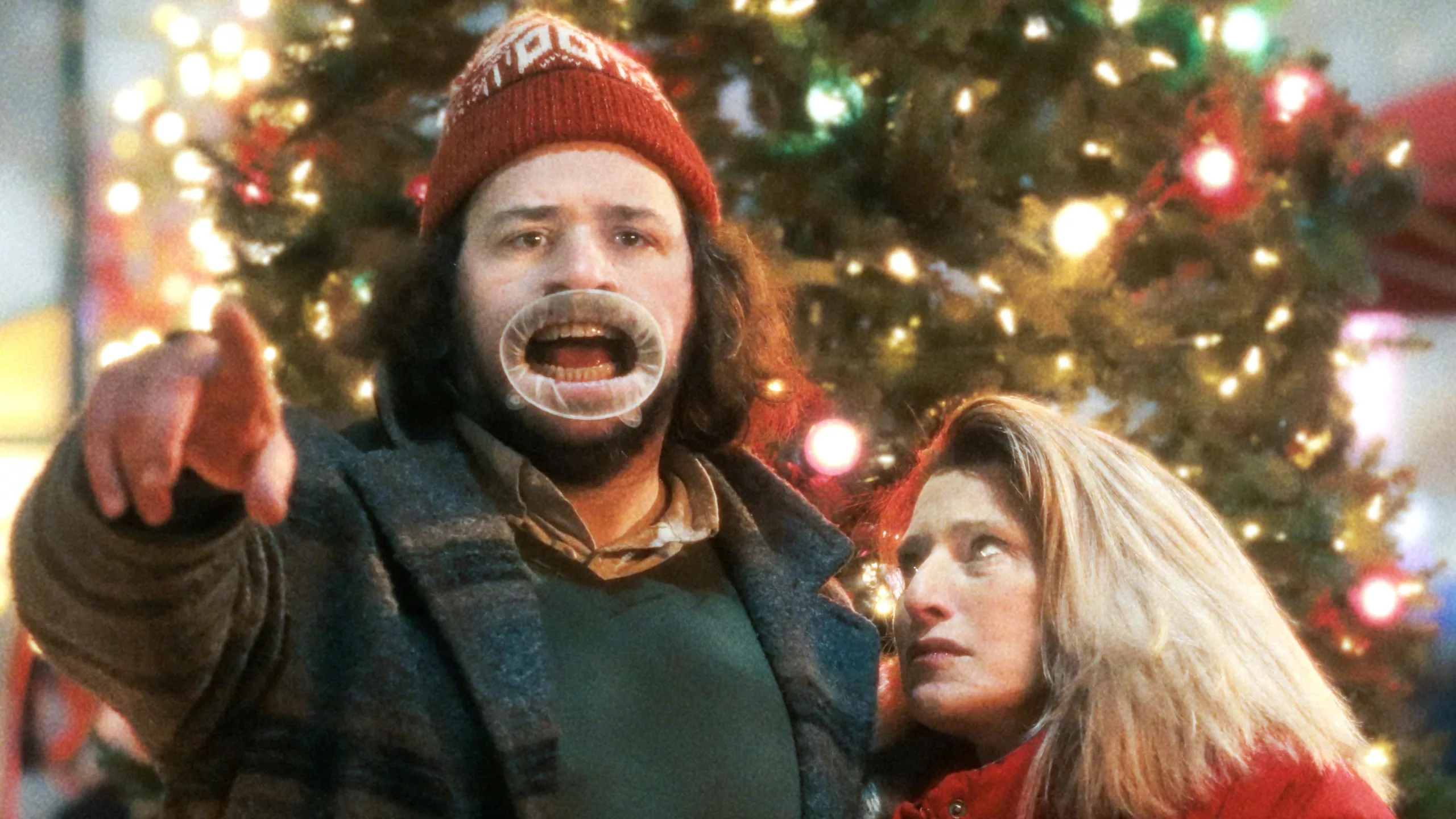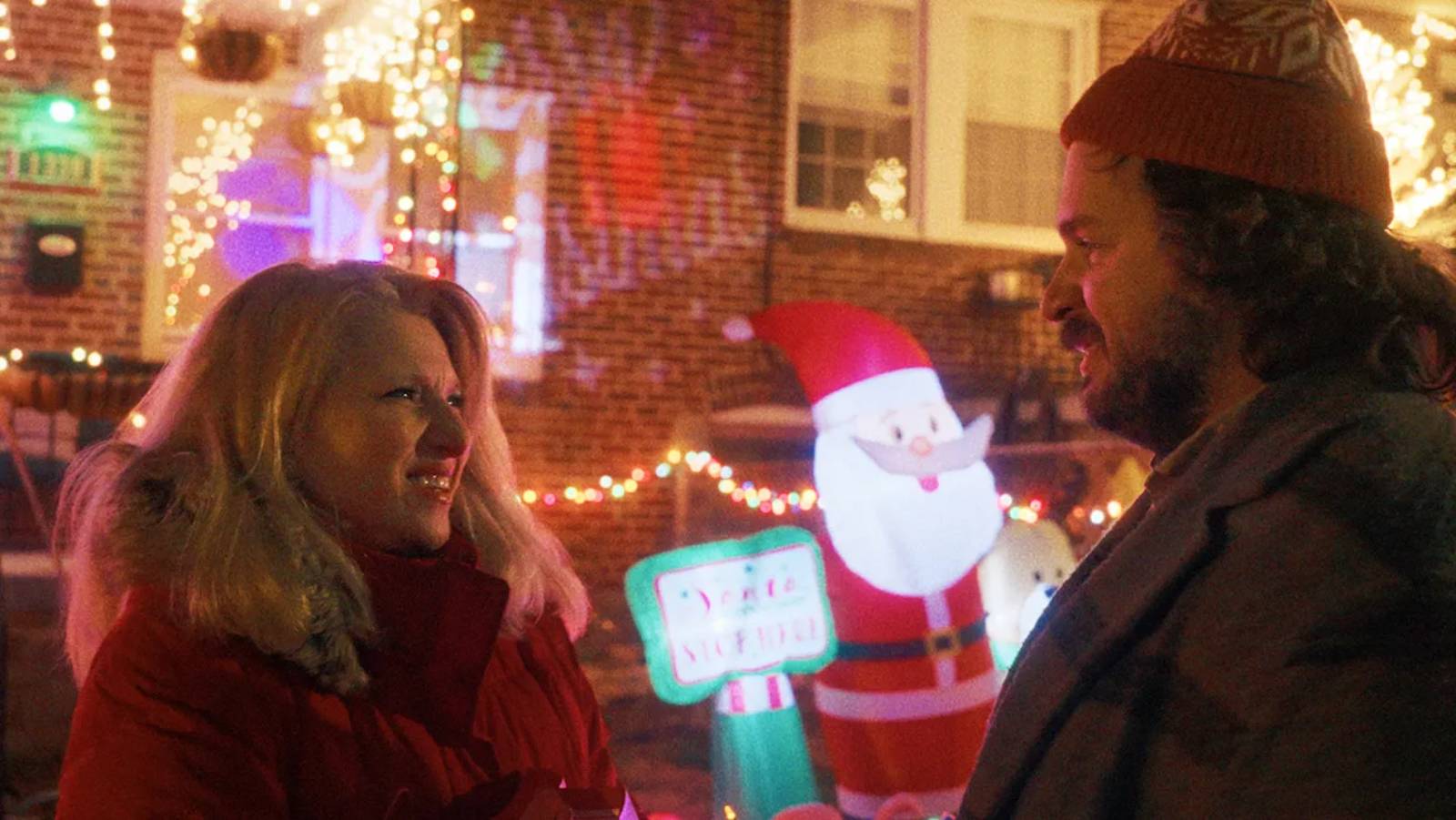Funny, sweet, painful and romantic: that’s The Baltimorons’ Cliff (played by co-screenwriter Michael Strassner, who we’ll be hearing more from) and Didi (the emergency dentist whom Cliff encounters on Christmas Eve and with whom he subsequently spends the entire evening wandering around Baltimore). Yes, he’s insufferable (and leaves his fiancée waiting), but also irresistibly charming. Much like the film itself, the solo directorial debut from Jay of the Duplass brothers.
There’s something maddening about someone being so charming they can get away with being insufferable. But there’s also something utterly disarming about it. This applies to Cliff and, judging from interviews, to actor Michael Strassner as well, who doesn’t merely play Cliff but embodies him.
Cliff is rather like an enormous puppy—one who knocks things over in his enthusiasm and constantly forgets everything, yet still looks genuinely contrite when scolded. Now, Clifford is a grown man who really does try to do grown-up things (he’s been six months sober, for instance) and genuinely attempts, when necessary, to have serious conversations and listen earnestly to what others have to say and how he’s hurt them. But you can see it takes effort. And that he’d rather bounce around like a puppy. And then immediately forget everything.
The director is Jay Duplass of the Duplass Brothers (who, incidentally, Jay claims, would easily win a fight against the Coen Brothers and the Safdie Brothers because the Duplasses are in the best shape), making his solo directorial debut with The Baltimorons. It’s a more polished (and I don’t mean that negatively) version of what the brothers became known for: low-budget contemporary talky films (mumblecore).
Which brings us to the second protagonist: the dentist whom Cliff encounters on Christmas Eve after walking into a wall while looking at his phone. She’s called Didi (Liz Larsen) and has her own issues, which he pokes at shamelessly and accidentally overhears. She initially rebuffs his advances because he’s thoroughly insufferable (and also because he keeps mentioning his fiancée, with whom he should actually be celebrating Christmas at that moment—rather as if he’s trying to remind himself: I have a fiancée, I have a fiancée).
But he’s also charming—and slowly but surely (and because various chance events keep them from saying goodbye at various Baltimore locations), she gives in. Just as I did. And just as the visitors to South by Southwest, where The Baltimorons won an audience award.
I’d rather not have to mention that Didi is considerably older than Cliff, because the gender-reversed situation is so commonplace in cinema (and in the world)—just look up Humphrey Bogart and Ingrid Bergman. But it genuinely is part of the story: Didi’s ex-husband has remarried a much younger woman, she tells us, and she also references her menopause and grandchild. In one sense, her disappointment fits perfectly with Cliff’s hesitations about embarking on the whole house-picket fence routine, and in that regard the difference in life stages genuinely plays a role. But in another sense, not at all: these are simply two people with tremendous chemistry who fall hard for each other. He’s unfiltered and clumsy; she’s adventurous and suspicious—boom!
So yes, it’s thoroughly insufferable how Cliff leaves his fiancée with her mother at Christmas to gallivant about with his emergency dentist. But it’s also an evening I wouldn’t want to end. And that fiancée (Olivia Luccardi) gets room in a handful of beautiful scenes to be a complete, fully-realised character—angry, worried, and understanding, all at once.
Trigger warning: suicide plays a role in the plot.
KEES Driessen





